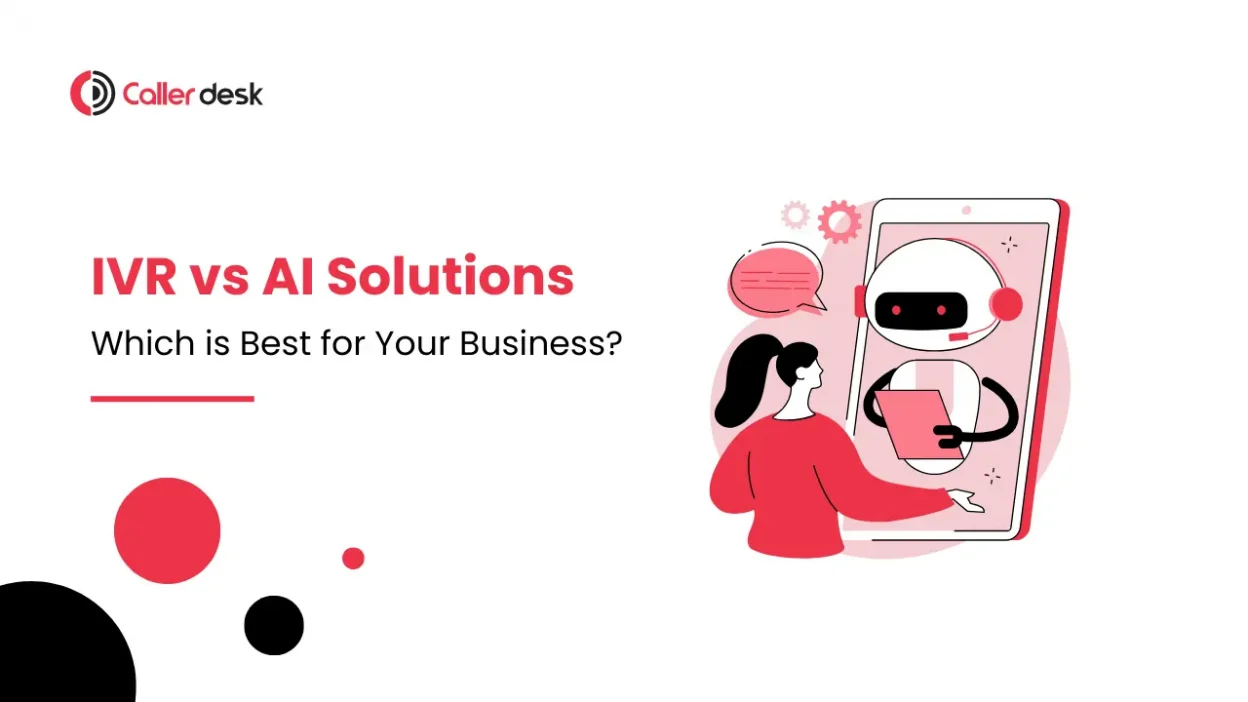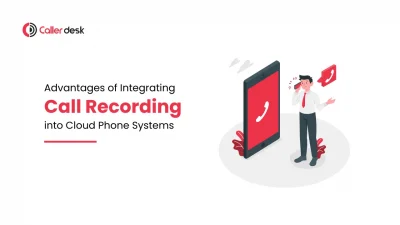Confused about whether to go with IVR or AI for your customer service? Don’t worry—you’re not alone! With so many options, it can be tough to decide what’s right for your business.
IVR (Interactive Voice Response) and AI are two popular ways to manage customer calls and queries. But which one is the better fit for your business?
In this blog, we’ll explain the difference between IVR and AI in simple terms, look at their pros and cons, and help you pick the right option. By the end, you’ll know how these tools can make your customer service better and keep your customers happy.
Understanding IVR and AI Solutions
What is IVR?
Interactive Voice Response (IVR) technology enables callers to interact with a computerized system using voice or keypad inputs. IVR systems can route calls, provide information, and facilitate transactions without human involvement. Commonly used in customer service, IVR systems streamline call handling and improve efficiency.
Benefits of IVR
- Cost-Effective: Cost-effective: Automates regular inquiries, reducing the need for live agents.
- Efficiency: Handles large volumes of calls simultaneously, ensuring quick response times.
- Consistency: Provides standardized responses, ensuring all customers receive the same information.
Disadvantages of IVR
- Limited Interaction: IVR systems are often limited to pre-programmed responses and can struggle with complex queries.
- Customer Frustration: Can lead to frustration if customers find the menu options too complicated or if the system fails to understand their input.
What are AI Solutions?
AI solutions in customer service use artificial intelligence to offer smarter and more personalized interactions. This includes chatbots, virtual assistants, and machine learning algorithms that analyze customer data to give customized support. AI can understand natural language, learn from past interactions, and provide consistent service across different channels.
Benefits of AI Solutions
- Enhanced Customer Experience: Offers personalized and context-aware interactions.
- Scalability: Easily scales to handle increasing customer interactions across multiple channels.
- Data-Driven Insights: Analyzes customer data to provide actionable insights and improve service strategies.
Disadvantages of AI Solutions
- Cost: Implementation of AI solutions can be costly and requires ongoing investment.
- Complexity: Creating and maintaining AI systems can be difficult and require specific abilities.
- Privacy Concerns: Handling customer data requires stringent measures to protect privacy and comply with regulations.
Key Differences Between IVR and AI Solutions
1. Automation and Interaction
- IVR: Limited to pre-recorded responses and keypad inputs. It follows a set script and cannot deviate from its programmed responses.
- AI Solutions: Capable of understanding natural language and participating in dynamic conversations. AI can adapt to the situation and learn from previous interactions to better future answers.
2. Customer Experience
- IVR: Can be frustrating if the menu options are too complex or if the system fails to understand inputs. It’s less flexible in handling unique or unexpected queries.
- AI Solutions: Generally offer a smoother and more intuitive experience. AI can provide personalized assistance and handle a wider range of inquiries, making interactions more satisfying for customers.
3. Implementation and Maintenance
- IVR: Requires initial setup of call scripts and regular updates to keep information accurate. Maintenance can be less complex but still requires oversight to ensure the system works correctly.
- AI Solutions: Typically involve a more complex setup with training data and algorithms. Maintenance includes continuous learning and updates to keep the AI relevant and efficient. However, once established, AI can reduce the need for human oversight significantly.
Considerations for Choosing IVR or AI Solutions
1. Business Size and Needs
- Small Businesses: IVR may be sufficient for handling routine calls and providing basic information, such as bill payment inquiries.
- Large Enterprises: AI solutions offer scalability and personalization, making them ideal for handling diverse and complex customer inquiries, like complex travel booking changes.
2. Budget and Resources
- IVR: Generally has lower initial costs and easier maintenance.
- AI Solutions: Require a higher initial investment but can offer significant long-term savings through reduced human resource needs and improved customer retention.
3. Customer Expectations
- IVR: Suitable for customers comfortable with traditional phone interactions.
- AI Solutions: Preferred by tech-savvy customers who value quick, personalized service across multiple channels.
Which is Best for Your Business?
The decision between choosing IVR and AI solutions depends on the size of your business, your budget, and your customer service objectives. IVR is a budget-friendly option for automating simple tasks, while AI offers advanced features for improving customer interactions and gathering insights. Consider your specific needs and resources to decide which option is best for your business.
Explore how CallerDesk can help you implement the right solution tailored to your business needs. Contact us today for more information or to schedule a consultation on enhancing your customer service experience with advanced technologies.





